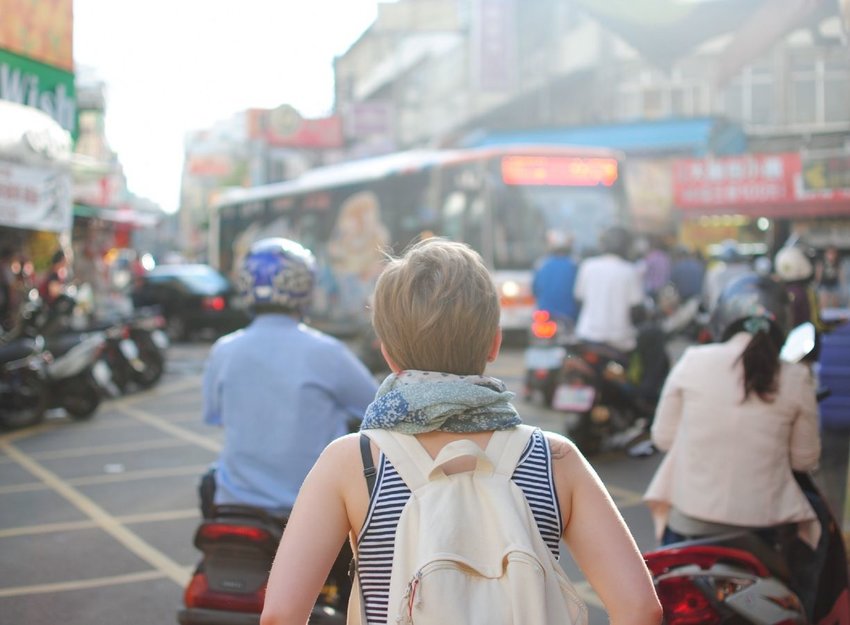When you’re traveling abroad to a country that doesn’t speak your mother tongue, you should know some basic phrases. Of course, this is important for your own safety and well-being, but it also shows a level of respect for the country you're visiting when addressing locals. Making an effort to say hello in the native language goes a long way. Here are some of the most important words to learn in any language.
Hello
If you can’t greet someone, you won’t get far in a conversation. Besides, saying hello is polite and helps make a good impression. In Japan, there are different versions of hello for different times of day or to indicate respect, so it’s especially important to make sure you know the appropriate form. For example, “konnichiwa” is the equivalent of good afternoon, while “konban wa” means good evening. There isn't a single word that translates to hello.
Please
Saying please is arguably more important than saying hello. If you want to come across as polite and appreciative, then you need to know how to make a courteous request. In Chinese, “qǐng” means please, but a more formal way to make your request is with the phrase “Máfan nǐ” or "Sorry to trouble you." In Hindi, the magic word is “krpya.”
Thank you
In tandem with please, a simple thank you will show the person you’re speaking to that you appreciate their time and their willingness to help you. Whether you’re thanking someone for directions, a meal, or a gift, this simple phrase will take you far. If you’re visiting South Korea, you might show gratitude by saying, “Gamsahabnida,” while in Thailand, you’d say “Khaawp khun.”
Excuse me
Excuse me is often safer to use when you don’t know the person you’re approaching. In some countries, being polite is of utmost importance. For example, in Japan “sumimasen” is the word for excuse me, but it means more than just that. It’s an apology and an expression of gratitude and can have even more uses — depending on the context. On the other hand, the Spanish phrase “perdóneme” sounds a lot like the English pardon me.
Where is the bathroom?
You really don’t want to be without this phrase. Even if you don’t understand what the other person is saying, they’ll point you in the right direction. They might even go out of their way to lead you there. If you’re in Prague, you can ask, “Kde je koupelna?” in Czech while in Afrikaans, you’ll get where you need to go with the phrase, “Waar is die badkamer?” You may also want to know how to ask where other places are too. It makes it a lot easier to navigate busy cities and find your way back to your hotel.
Do you speak English?
Since English is so widely spoken worldwide, you’re likely to meet people who speak it, but you can't expect that everyone will. If you don’t know the local language, ask if someone speaks yours. Even if that person doesn’t speak English, they might be able to help you find someone who does. If you’re in Taipei you can ask, “Nǐ huì shuō yīngyǔ ma?” and in Greece, the query is “Milás angliká?” You’re likely to find someone who can help you communicate no matter where you go.
I’m sorry
If you bump into someone on the street or say something offensive by mistake, you need to know how to make amends. Apologizing will at least soften the blow. In an unfamiliar place, you don’t want to make enemies. Some countries like Japan have multiple ways to apologize. For example “Gomen nasai” and “Sumimasen” both mean “I’m sorry,” though the latter is more formal. Meanwhile in Portuguese, “Eu sinto muito” lets someone know you’re sorry for your actions.
Help
You never want to experience an unfortunate event in another country, but it can happen. In cases like these, know how to ask for help. Even if you just say “help,” the person you’re speaking to will know you need assistance right away. Phrases for help range from the Vietnamese “Giúp tôi” to the Turkish “Bana yardim et.”
I’m allergic to...
Most people don’t think of this one when they’re traveling, but it can be a lifesaver. If you go to a restaurant and you have a shellfish allergy, your waiter needs to know. Otherwise, you could end up in a dangerous situation or just waste a day uncomfortable in your hotel. Before you travel, know how to tell people if you have any allergies and what they are. In Germany, you might begin your statement with “Ich bin allergisch gegen,” whereas in Paris “Je suis allergique à” will tell your server to avoid certain ingredients.

